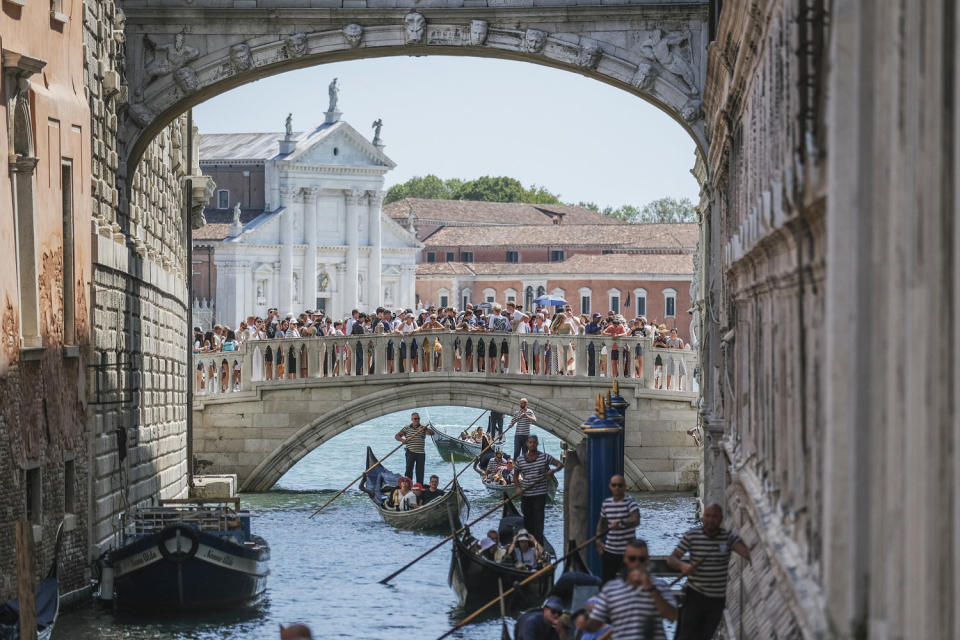Venice launches world first tourist entrance fee in bid to fight overcrowding
VENICE, Italy — Ancient and beautiful, this city is sometimes referred to as an open air museum — and now visitors to Venice will have to pay an entry fee after the tourist hub on Thursday became the first in the world to introduce a charging system for day-trippers.
In a bid to thin out the crowds that throng to see the canals, bridges and striking architecture during vacation season, day-trippers will have to pay 5 euros ($5.35) to enter the lagoon city on 29 peak days, mostly on weekends, as part of a trial phase until July 14.
Tourists who have booked at least one night at a hotel in the city will be exempt from the charge, as will residents, workers and students in the city. Visitors under age 14 will also be exempt. But like the day-trippers, they will also have to ensure they have registered online and received QR codes.
Those without smartphones will have to go to the city’s Santa Lucia train station to buy tickets.

Among the thousands of people lining up at the station for a ticket Thursday was Donna Porter-Mutchler, a tourist from Tennessee, who told NBC News she thought the charge was “a wonderful idea.”
“Venice deserves to be taken care of,” she said. “I think it’s more than worth it. I come here often, and I’ll pay every time.”
While there will be no limits on the number of people who can register, officials hope the fee will put people off on days it applies.
“We are not looking to collect money, tax people or introduce a police state,” Simone Venturini, Venice’s tourism councilor, told NBC News. “We are being democratic about it, but the important message is: ‘Please, if you are a day-tripper, choose another day.’”
While there are no turnstiles at the city’s entrance points to make sure people have passes, inspectors will make random checks and issue fines of 50 to 300 euros to anyone who has failed to register.
Prominent signs across the city and a TV and newspaper advertising campaign have been launched in Italy and some other countries to let people know about it. And with the help of artificial intelligence, Mayor Luigi Brugnaro has also recorded a video message in several languages to inform tourists about the charge.
Officials in the city estimate an average of 50,000 people a day visit Venice, an influx that almost matches the resident population, some of whom are unhappy about the new charge.
“Venice has turned into Disneyland, where tourists are catered more than residents, and charging $5 is not going to stop anyone,” Federica Toninello of the Social Assembly for Housing and the Solidarity Network for Housing in Venice said Thursday. “It’s just propaganda.”

Others, like tourist guide Luisella Romeo, said they were concerned about the use of personal data collected by the new system. “That’s an invasion of privacy. Those details will remain in the system for five years and could be given to third parties, public and private,” she said.
But officials in the city, which narrowly escaped being placed on UNESCO’s “World Heritage in Danger” list last year, in part because the United Nations body decided that it was not addressing concerns that its delicate ecosystem risked being overwhelmed by mass tourism, have insisted that something needed to be done.
Three years ago, large cruise ships were banned from sailing into the Venetian lagoon, and the city has also announced limits on the sizes of tourist groups.
While the charge in Venice is still in its experimental stage, other popular Italian tourism destinations, like Lake Como, which has struggled with overcrowding for years, are watching closely.
Only time will tell whether it ends up dead in the water.
This article was originally published on NBCNews.com

